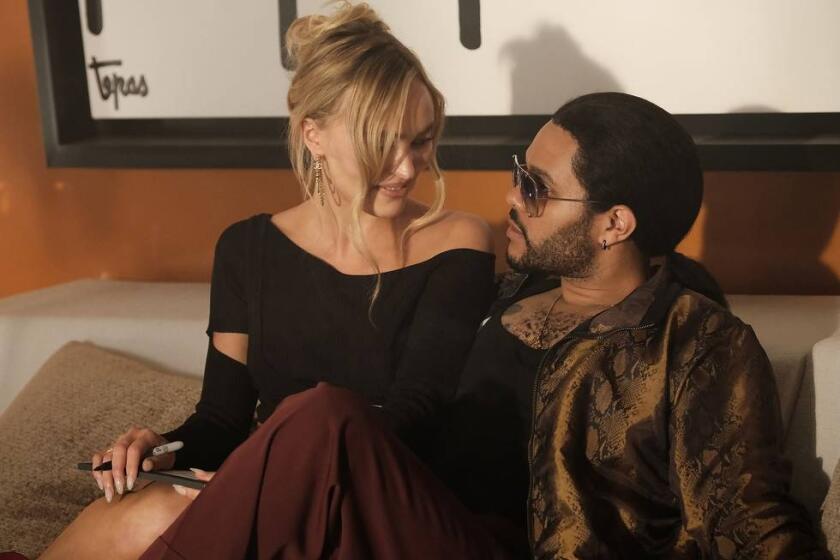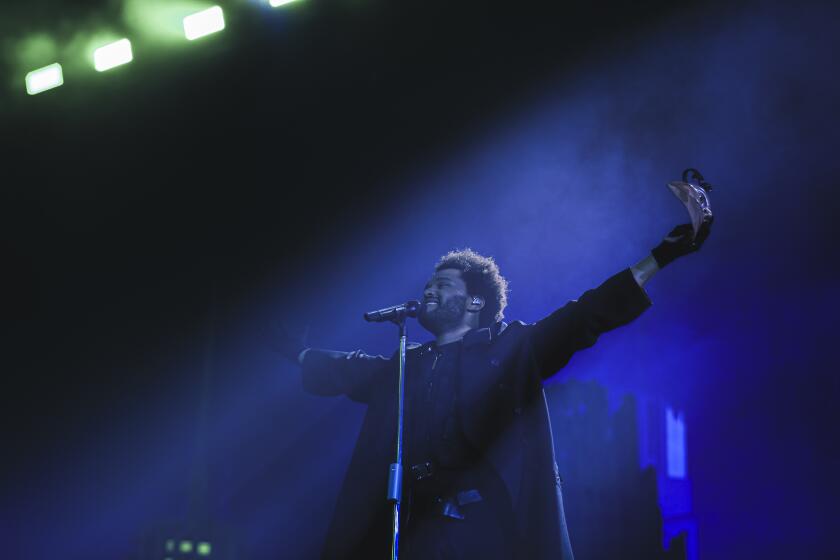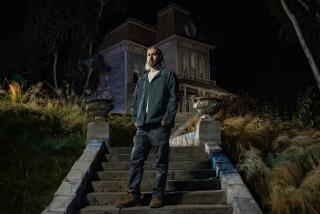‘The Idol’ is hot garbage. Will its stench cling to the Weeknd?
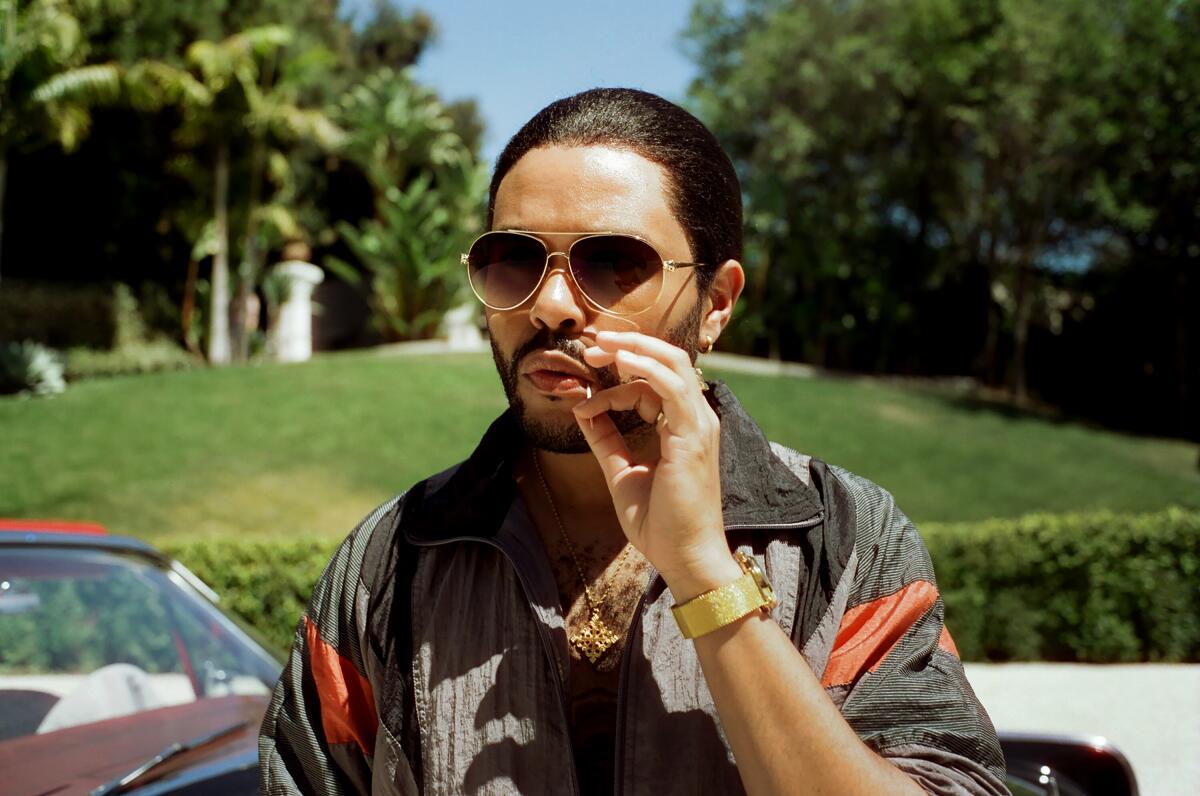
- Share via
Nine months ago, the Weeknd used a professional high point to herald what may end up the low-water mark of his career.
Performing the first of two sold-out concerts in September at Inglewood’s SoFi Stadium — part of a world tour behind 2020’s blockbuster “After Hours” LP and its 2022 follow-up, “Dawn FM” — the pop-soul auteur brought Lily-Rose Depp to the stage to film a climactic scene for “The Idol,” the then-mysterious HBO series he had teamed with “Euphoria’s” Sam Levinson to create.
“The Idol” at that time had all the makings of a cultural sensation, and its buzz grew only louder over the next few months, even as Rolling Stone reported on the series’ beleaguered production and its descent into “sexual torture porn.”
“When my wife read me the article,” Levinson said of the Rolling Stone story after the show premiered at May’s Cannes Film Festival, “I looked at her and I just said, ‘I think we’re about to have the biggest show of the summer.’”
In a sense, Levinson was right — though presumably not for the reasons he and the Weeknd had hoped.
HBO’s ‘The Idol’ is meant to be a satire about the excesses of fame, celebrity worship and the objectification of underage talent, but it fails to succeed.
“The Idol,” which stars the Weeknd (born Abel Tesfaye) as a rattailed L.A. club owner who slowly takes over the life of a troubled pop singer played by Depp, has dominated conversation on social media since the beginning of its five-episode season on June 4. According to research from Parrot Analytics, audience demand for the show is more than 20 times as high as demand for the average TV series, putting “The Idol” ahead of 99.5% of all drama titles in the United States.
Yet virtually all of the chatter has been damning, to say the least, with strong criticism of the show’s clunky writing, Tesfaye’s awkward acting and the creators’ apparent inability to understand that the series is engaging in precisely the type of exploitation that it purports to denounce. Also: Traditional ratings have been dismal, which suggests that people are more interested in posting about how bad “The Idol” is than they are in actually watching it.
Given that reaction, it was easy to imagine a trace of relief this week when the Weeknd, who’s 33, tweeted “ONE MORE EPISODE” ahead of Sunday night’s finale, as though you could hear the implied “ONLY” in his voice. (One music-biz insider, granted anonymity like others in this piece in order to speak candidly, said HBO’s decision to parcel out the series episode by episode instead of dropping the whole season at once “made it feel like a seven-minute TikTok of a train crashing in slow motion.”)
The question now that the show is ending is what, if any, effect its flopping will have on the Weeknd’s career in music.
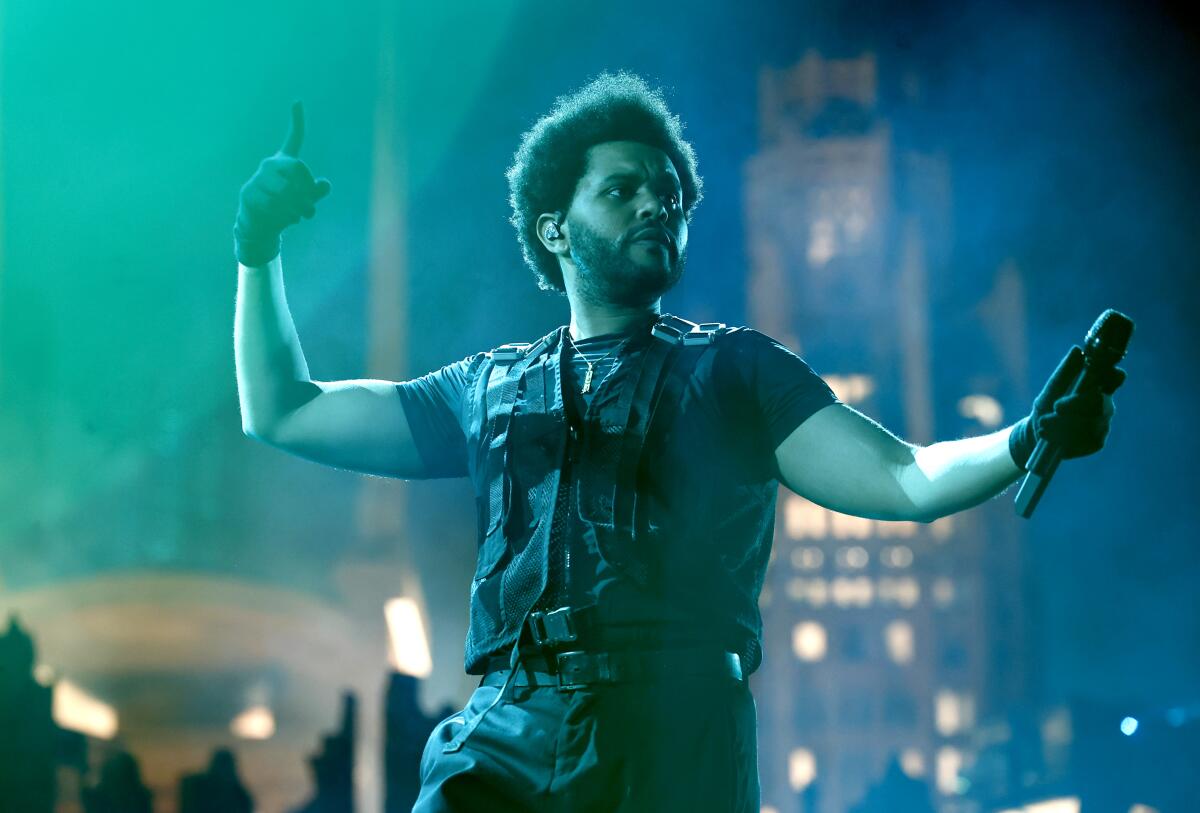
It’s not surprising that he chose this moment to try a move into Hollywood. His song “Blinding Lights” is the most streamed track of all time on Spotify. “After Hours” spent four consecutive weeks at No. 1. He played the Super Bowl halftime show in 2021 and co-headlined Coachella in 2022. As a pop star, the Weeknd couldn’t really get any bigger when he signed on for “The Idol”; if anything, “Dawn FM’s” lack of monster radio hits portended a commercial decline natural for his age.
Think of him as at roughly the same point at which Lady Gaga took on her role opposite Bradley Cooper in his 2018 remake of “A Star Is Born.” Before the show premiered, he even said he was “getting ready to close the Weeknd chapter,” and that he wanted to start going by his real name.
But where “A Star Is Born” brought Lady Gaga rave reviews and an Oscar nomination for her acting — not to mention a chart-topping single in the movie’s “Shallow” — “The Idol” has made the Weeknd the butt of countless jokes regarding his painful line readings and his laughable facial expressions in the role of Tedros.
The series, for which he’s a credited writer, is built on the flawed premise that Depp’s character — a scantily clad white female pop singer named Jocelyn — is the kind that a record label would still be pouring money into. As digital streaming has chipped away at the power of music’s established gatekeepers, labels have learned that hits can be made (or found) far more cheaply than in the days of lavish video shoots and high-glam magazine covers; #MeToo only further diminished the centrality of stars keyed to an old-fashioned male gaze.
That’s not to say, of course, that women’s bodies aren’t monetized in today’s pop industry. But consider that the closest thing to a real-world Jocelyn-style hit this year is Miley Cyrus’ “Flowers,” which explicitly rejects the idea of relying on a man’s validation. Or take the proliferation of K-pop girl groups, whose performance of sexuality has a very different vibe — more slay-queen dominant, less wink-wink submissive — than that of Britney Spears or Christina Aguilera.
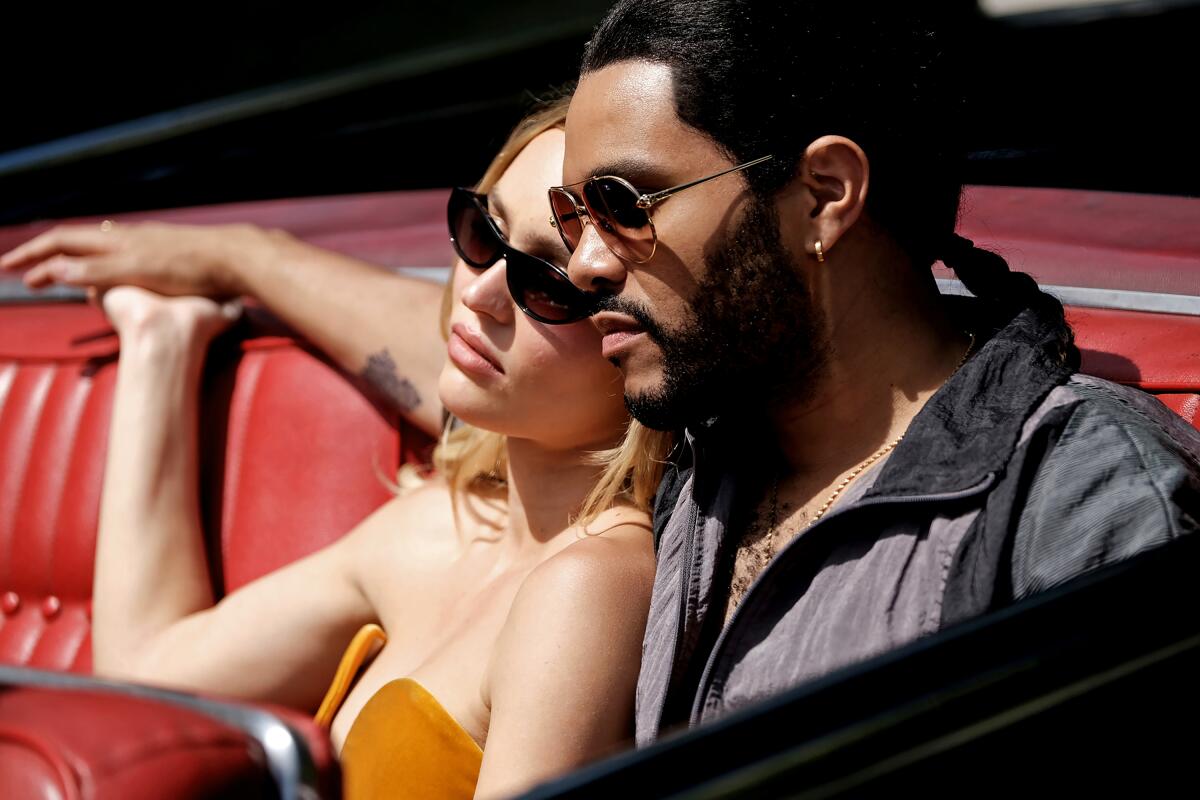
As seen in any number of Tedros’ tortured conversations with Jocelyn about her relationship with her abusive mother, “The Idol” also clings to the outdated idea that suffering is required to create great art — a notion out of step with an era in which mental health has become a ubiquitous marketing concept. To be fair to “The Idol,” “A Star Is Born” drew a similarly naive line between pain and authenticity. In the cathartic “Shallow,” though, Lady Gaga managed to sell that illusion, whereas the Weeknd’s songs from “The Idol” — not one of which is on Spotify’s closely watched Top 50 — have felt like little more than scene-setting exercises.
The only standout is Jocelyn’s would-be comeback single, “World Class Sinner / I’m a Freak,” an expertly rendered take on the bad-girl pop come-on in which Depp tells a prospective lover, “Get down on your knees and get ready to become my bitch.” (Hilarious!) Yet in the world of the show, Tedros is oblivious to what’s good about “World Class Sinner,” which raises the real problem with “The Idol”: To what extent are we supposed to separate Tedros, a sadist with a shock collar at the ready, from the Weeknd, a gifted musician attuned to a dark vision?
The Weeknd has successfully upsized his louche, 4 a.m. club bangers about sex, drugs and dissolution for the enormodomes befitting a global superstar.
With his sleazy look, his druggy demeanor and his taste for rough sex, the character clearly draws from the singer’s persona as embodied in hits like “The Hills” and “Can’t Feel My Face”; one reason Tedros is so underwritten is because Levinson and Tesfaye no doubt assumed that viewers, having listened to the Weeknd for years, would fill in the blanks themselves.
But for all the unsavoriness of his music, the Weeknd has always retained an endearing quality (and an ear for hooks) that kept you on his side. Tedros, in contrast, is a pure villain — one Tesfaye isn’t sufficiently skilled as an actor to portray in a way that foregrounds his talent. He and Levinson appear to be aiming for a critique of the music industry’s dehumanizing treatment of young women; occasionally, “The Idol” displays a flash of self-awareness, as in a scene in a recording studio where the producer Mike Dean (playing himself) raises an eyebrow as Tedros gropes Jocelyn as she records vocals for a new song.
Yet the show is so gratuitous in its handling of Depp’s naked body that there’s no functional difference between it and what it’s satirizing. Indeed, a galaxy-brain read of “The Idol” would be that Tesfaye and Levinson have succeeded at demonstrating that exploitation is alive and well in the record biz — at the unexpected expense of their reputations.
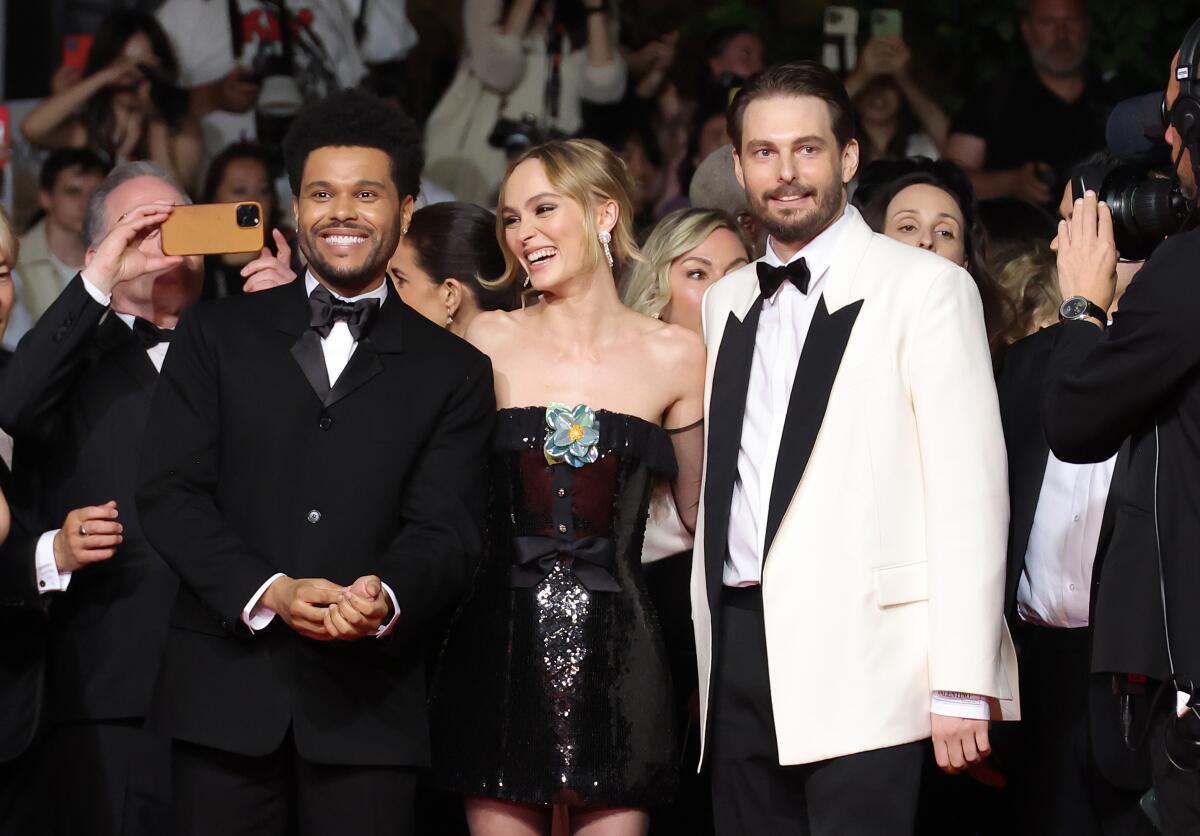
Few in the business seem to think the damage will be lasting for the Weeknd. “Deliver bangers like he does and tour relentlessly” — he’s on the road playing stadiums in Europe as we speak — “and people will have the memory of a fruit fly,” said one seasoned executive. A prominent songwriter pointed out that breaking new stars is so difficult in today’s market that “the old ones are kind of bulletproof.” “Burn every copy of Vanity Fair” on which the Weeknd appeared to promote “The Idol,” said another exec, and he’ll be just fine.
Then again, after giving his no-big-deal take on the show, one source called back to say he’d spoken with a younger woman in his orbit who’d told him the Weeknd was now “tacky” in her and her friends’ view.
You have to wonder whether Tedros’ barbarism will make it hard to take the Weeknd seriously when he returns with his next batch of haunted boudoir jams. (Some of his cruder lines of dialogue have already become unkind internet memes.) Ditto his relentless attempt on social media to position the show as a triumph despite the ample evidence to the contrary — a cause utterly at odds with the mystique he cultivated so carefully in his early years.
Maybe five episodes of a poorly rated TV show aren’t enough to derail that image-building. But if the Weeknd can’t sing about being horny in the shadows, what other options does he have?
More to Read
The biggest entertainment stories
Get our big stories about Hollywood, film, television, music, arts, culture and more right in your inbox as soon as they publish.
You may occasionally receive promotional content from the Los Angeles Times.
